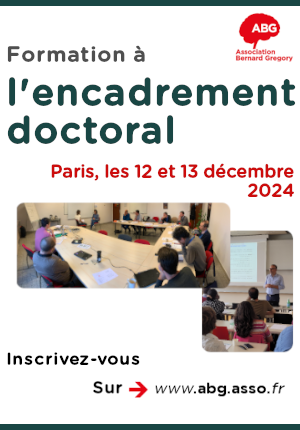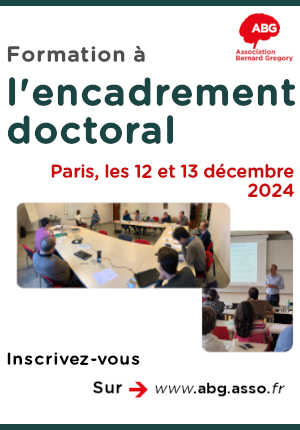Unconventional approach for aging monitoring based on S-parameters analysis
| ABG-126495 | Thesis topic | |
| 2024-10-26 | EU funding |

- Electronics
- Energy
Topic description
The PhD subject is part of the SAFEPOWER European project, particularly concerning the rise in sustainable, competitive, and secure Medium Voltage DC (MVDC) converters.
Electrification and the widespread adoption of renewables are crucial for achieving deep decarbonization, promoting a sustainable energy transition, and reducing the EU's reliance on Russian fossil fuels (REpowerEU). The growing demand of electric energy also driven by electrification underscores the pressing need for a more efficient, secure, flexible, and affordable energy distribution in the foreseeable future. In this context, Medium Voltage Direct Current (MVDC) grids are decisive. They are instrumental in facilitating the deployment of renewables, especially solar plants, across Europe, ensuring regional coverage within countries in a range of a few hundred kilometers. In this distribution, MVDC converters, operating with direct current (DC) at medium voltage levels (1-35 kV) and handling DC/DC, AC/DC and DC/AC conversions, perform essential functions such as voltage transformation to align with various loads connected to the grid. They contribute to power control and management, regulating voltage, current, and power flow for grid stability and reliability. Therefore, enhancing security, reliability, resilience and affordability of MVDC converters is pivotal for advancing Europe’s energy transition.
In this scenario, SAFEPOWER first explores and investigates on essential digital, enabling, and emerging technologies to achieve a new generation of MVDC converters:
i) capable of anticipating failures to prevent downtime using effective Condition and Health Monitoring (C&HM) solutions (online and offline) assisted by artificial intelligence (AI) strategies,
ii) based on more compactly-packaged, efficient, rugged and affordable Silicon Carbide (SiC) power MOSFETs, diodes and JFETs for DC breakers with a more sustainable manufacturing, and iii) prospecting on Ga2O3-based emerging power devices (MESFETs, diodes and JFETs for DC breakers) especially designed for this application.
This PhD subject addresses the first items by developing an innovative approach for monitoring the power electronic devices aging, through S-parameters analysis. The unconventional approach is based on previous research conducted by the e-ACE² research group. This unconventional non-destructive testing method employs Radio Frequency characterization to investigate impedance changes and will be applied to various aging processes, including thermal cycling, active power cycling, and overvoltage stresses.
Starting date
Funding category
Funding further details
Presentation of host institution and host laboratory
Voir descriptif : https://www.uttop.fr/fr/recherche.html
Créé en 1989, le Laboratoire Génie de Production (LGP) est, depuis novembre 2023, un laboratoire de l'Université de Technologie Tarbes Occitanie Pyrénées (UTTOP). À ce titre, il est intégré à l’Université de Toulouse et mutualise un certain nombre d'actions avec d'autres établissements et laboratoires, nationaux et internationaux.
Le LGP est un laboratoire pluridisciplinaire qui développe des activités de recherche autour des matériaux, de la mécanique, de l'automatique, de l'informatique, du génie électrique, de la robotique et des sciences et techniques de production dans le champ des Sciences et de l'Ingénierie des Systèmes. Sa mission est de conduire et de développer des recherches dans les domaines relatifs à la formation des ingénieurs généralistes et de favoriser le lien entre formation, recherche et transfert technologique.
Les recherches sont menées le plus souvent en lien étroit avec des problématiques réelles du monde socio‐économique dans le cadre des trois enjeux sociétaux de l'Université de Technologie de Tarbes.
Le LGP s’appuie sur des équipements remarquables, cohérents avec le besoin des entreprises et le profil des ingénieurs formés sur le site tarbais.
Il est organisé autour de deux départements scientifiques « Mécanique-Matériaux-Procédés » et « Systèmes » regroupant l’ensemble des enseignants-chercheurs et chercheurs, et de deux axes transverses « Procédés Additifs Intelligents, de la Matière au Système » et « Jumeau Numérique », fédérant les activités autour de la fabrication additive, de l’intelligence artificielle, de la simulation et des jumeaux numériques.
https://www.lgp.enit.fr/fr/lgp.html
Website :
PhD title
Country where you obtained your PhD
Institution awarding doctoral degree
Graduate school
Candidate's profile
The candidate must have a scientific background specializing in electronics / radio frequency / electrical engineering. In addition to proven technical qualities, the candidate must have scientific curiosity to tackle the different stages proposed but also be proactive in the conduct of the study. Good mastery of the characterization tests of electronic cards would be an advantage. Mastery of Scilab and/or Matlab/Simulink software, coupled with knowledge of LTSPICE/PSPICE type circuit software is important. Experience in characterizing S parameters using a vector network analyzer or the use of software tools such as ADS or ORCAD would be an additional asset. The candidate will have qualities in terms of human relations to carry out interactions with several experts who will help its work.
The candidate must also have a good level in English language and written and oral communication and synthesis skills. Let us note that same skills in French are welcome. Ideally, the candidate will either be at the end of their Research Master course, or will have accumulated one to two years of experience after their Research Master course
Vous avez déjà un compte ?
Nouvel utilisateur ?
Get ABG’s monthly newsletters including news, job offers, grants & fellowships and a selection of relevant events…
Discover our members
 ONERA - The French Aerospace Lab
ONERA - The French Aerospace Lab  MabDesign
MabDesign  TotalEnergies
TotalEnergies  Institut Sup'biotech de Paris
Institut Sup'biotech de Paris  CASDEN
CASDEN  ADEME
ADEME  Ifremer
Ifremer  Généthon
Généthon  ANRT
ANRT  PhDOOC
PhDOOC  Tecknowmetrix
Tecknowmetrix  Groupe AFNOR - Association française de normalisation
Groupe AFNOR - Association française de normalisation  Aérocentre, Pôle d'excellence régional
Aérocentre, Pôle d'excellence régional  CESI
CESI  Nokia Bell Labs France
Nokia Bell Labs France  Laboratoire National de Métrologie et d'Essais - LNE
Laboratoire National de Métrologie et d'Essais - LNE  Institut de Radioprotection et de Sureté Nucléaire - IRSN - Siège
Institut de Radioprotection et de Sureté Nucléaire - IRSN - Siège  MabDesign
MabDesign  SUEZ
SUEZ
-
JobFixed-termRef. ABG126397University of CambridgeCambridge - United Kingdom
Postdoctoral Research Associate position in binder display platform development
BiochemistryConfirmed -
JobPermanentRef. ABG125911LVMH Gaïa- Ile-de-France - France

Ingénieur Recherche Nouvelles matières maroquinières (F/H)
Materials scienceJunior




